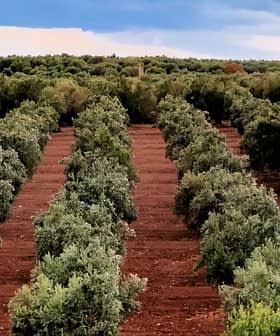Rural Payments Agency Overseeing New Olive Oil Regulations in U.K.
New EU olive oil regulations aim to protect consumers by ensuring authenticity and correct labeling of products purchased in EU member states through frequent checks and laboratory testing. The regulations, which apply to various types of olive oils, involve inspections at bottling establishments and in the retail sector to enforce compliance with EU standards and prevent adulteration of oils before they are permitted onto the market.

New European Union olive oil regulations have been introduced in a bid to protect and reassure consumers. The move aims to help ensure all products bought by those residing in an EU state are both authentic and labelled correctly.
The regulations involve frequent checks at bottlers and in the retail sector. Samples will be taken for chemical laboratory testing, while specialists will be brought in to analyze oils for taste.
Product labels will be examined to ensure they meet EU standards, which apply across all member states. Olive oil bottling establishments will face inspection, and samples of records, storage and production facilities can be checked by regulators on demand.
The new rules, set in the Commission Implementing Regulation and the Commission Regulation, came into force on January 1 this year. They are the latest indication from the EU of its concern for the quality of olive oil being sold across its 28 member states.
In the UK, the Rural Payments Agency’s (RPA) Horticultural Marketing Inspectorate has been chosen to oversee the new regulations.

Said RPA chief executive Mark Grimshaw, “I am delighted that the Rural Payments Agency has been chosen to carry out this work throughout the UK and believe it shows again that the Agency is proving itself to be an efficient, effective and trusted organisation.”
Adam Fisher, from the Rural Payments Agency’s press department, told Olive Oil Times, “The new rules are being introduced by the Commission to detect and deter any adulteration of olive oils and to ensure their authenticity.
“This includes ensuring that the container contents comply with those indicated on the label.”
The rules, says the RPA, will cover the following oils: extra virgin olive oil, virgin olive oil, olive oil composed of refined olive oils and virgin olive oils, and olive pomace oil and affect those bottling and / or selling olive oil.
Oils that don’t meet with the regulations, said Mr. Fisher, will not be permitted onto the market.
The RPA is confident about enforcing the new regulations, on the back of its claimed success with the Single Payment Scheme (SPS) performance. Here, the RPA paid £1.61billion ($2.62billion) in subsidies to more than 100,650 English farmers.
Last year, in another proposal to control olive oil consumption, an EU commission attempted to ban the use of refillable cruets in restaurants. The ban was eventually dropped.






